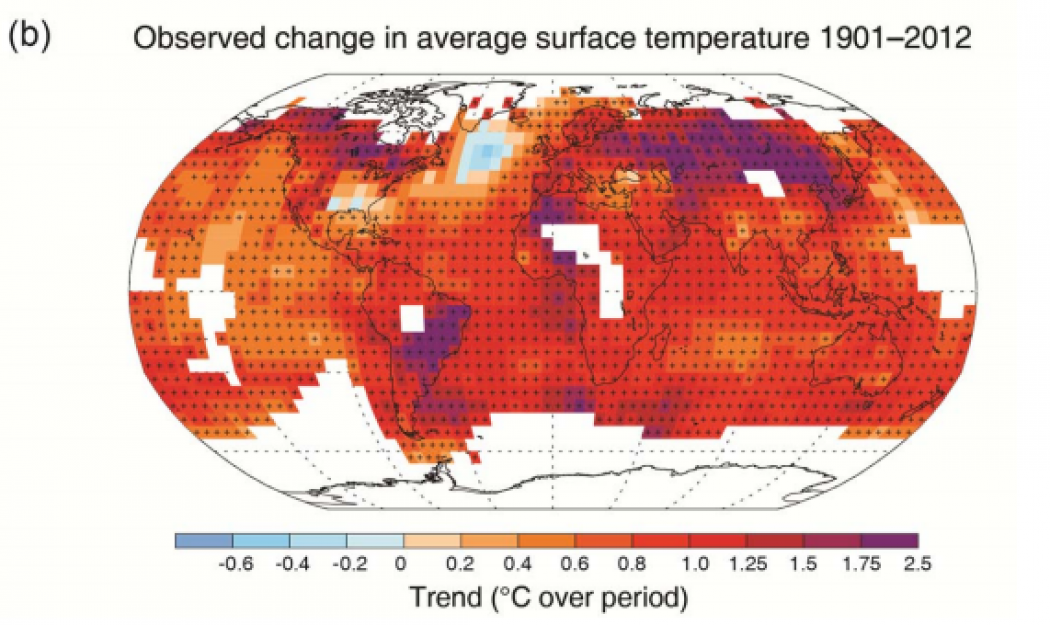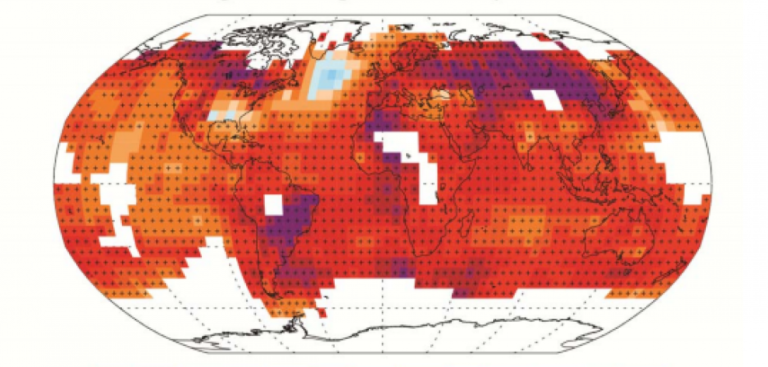Under the worst-case scenarios laid out in the United Nations climate change projections, global temperatures would increase more than 2°C by 2100, leading to at least a 0.5m rise in the global sea level. However, according to new research from CU Boulder, Colorado, these high-emissions scenarios, used as baseline projections in the UN’s Intergovernmental Panel on Climate Change (IPCC) global assessments, do not accurately reflect the slowing rate of growth in the global economy and we are unlikely to catch up to them anytime soon.
CU Boulder’s researchers say the new study, published in Environmental Research Letters, is the most rigorous evaluation of how projected climate scenarios established by the IPCC have evolved since they were established in 2005. “If we’re making policy based on anticipating future possibilities, then we should be using the most realistic scenarios possible,” said Matthew Burgess, lead author on the study and a fellow at the Cooperative Institute for Research in Environmental Sciences (CIRES) at CU Boulder. “We’ll have better policies as a result.”
To assess if IPCC scenarios are on track, the researchers compared projections from the latest report, published in 2014, and data used to prepare the upcoming report (due in 2022), with data gathered from 2005 to 2017 on country-level gross domestic product (GDP), fossil-fuel carbon dioxide emissions, likely energy use and population trends during this century.
Burgess and his co-authors state that even before the pandemic, due to slower-than-projected per-capita GDP growth, as well a declining global use of coal, these high-emissions scenarios were already well off-track by 2020, and look likely to continue to diverge from reality over the coming decades and beyond. They noted that the Covid-19 pandemic’s dampening effect on the global economy only accentuates their findings.
As a result, they contend that these high-emissions scenarios should not be used as the baseline in global climate assessments. They assert that emissions are not growing nearly as quickly as IPCC assessments have indicated, and may have already peaked. Therefore, IPCC is not using the most accurate, up-to-date climate scenarios in its planning and policy recommendations.
The researchers explain that when it comes to climate change scenarios, some scientists and climate experts fear that economic growth will be higher than the projected scenarios. However, according to Burgess, assistant professor in environmental studies and faculty affiliate in economics, this is unlikely to happen and his team’s research adds to an evidence base that economic growth and energy use are currently over-projected for this century.
Furthermore, recessions tend to have a greater economic impact and last longer than big economic booms. In 2020 alone, the US GDP has dropped more than 5% due to the Covid-19 pandemic. Even with fast growth, the world is unlikely to catch up to the GDP predicted in the IPCC’s high-emissions scenarios this century, according to Burgess.
Finally, the high-emissions scenarios used by the IPCC don’t fully account for economic damages from climate change. For example, for carbon emissions to rise to the level of some high-emissions scenarios, the average person in every world region in 2100 would have to be earning as much as an entry-level Google employee does today, said Burgess. Not only is that economically unlikely, but this level of individual wealth cannot exist at the same time as widespread climate change disasters that would damage infrastructure, prompt mass relocation and create global food insecurity.
Roger Pielke Jr, co-author on the paper and professor of environmental studies, noted that, “It’s reasonable to use extreme scenarios to explore what a future might look like under those conditions, because the future is uncertain. And climate modelers have really good reasons why they might want to use extreme scenarios in their work. But policy-relevant research has a different set of expectations.”
The researchers recommend that policy-relevant scenarios should be frequently recalibrated to reflect economic crashes, technological discoveries, and other real-time changes in society and Earth’s climate. However, they stress that no matter the scenario, the only way to get to net-zero emissions as a society is to dramatically reduce carbon dioxide emissions from our energy sources. “We’re still affecting the climate and the challenge of reducing emissions is as hard as ever,” stated Pielke Jr. “Just because it’s not the worst-case scenario doesn’t mean that the problem goes away.”




